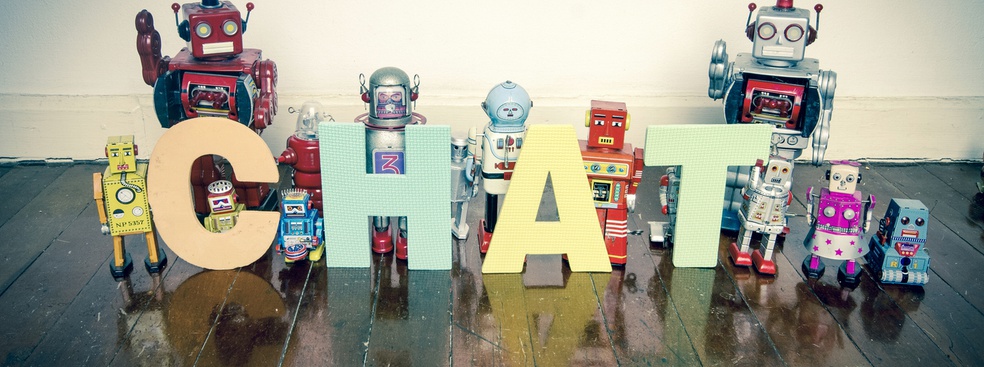As Artificially Intelligent innovations progresses by leaps and bounds, Professor Nicolas Glady, Marketing Professor and Chief Digital Officer at ESSEC Business School, gives us three reasons to stop worrying and learn to love AI.
___
Technological innovations have encountered resistance throughout history. From the printing press to the internet and the myriad of inventions in between, new technologies and their promises of of change have generated both fear and fascination. Artificial Intelligence (AI) is just the latest novelty to divide opinions.
For many experts, the thought of a future dominated by AI is downright frightening, not least because of its economic implications. Indeed, the world is going through a third industrial revolution during which many jobs will face elimination. That said, many experts - myself included - underscore how AI will change the world for the better, create jobs, and improve the way we work.
Here are three key reasons to stop worrying and learn to love AI:
1. Optimized Value Creation
It’s getting to the point where businesses can’t afford not to implement some form of AI technology. Chatbots, for one, are fast becoming a customer service must. These artificially intelligent programs are designed to conduct human-like conversations: 24 hours a day, seven days a week, they’re available to answer your clients’ questions, guide them through product searches, and process orders. Best of all, advancements in AI and natural language processing (NLP) make today’s ChatBot almost indistinguishable from a flesh-and-blood customer service representative.
In addition, ChatBots can also act as virtual assistants to help staff better manage their time, allowing them to focus on the more important aspects of their jobs. In other words, ChatBots are like full-time employees that you only need to pay once. But not only do chatbots cut overhead, they ultimately help businesses increase productivity, handle much larger volumes and grow revenue streams.
AI can also help businesses manage the resulting increase in data volumes related to customers, employees and processes. Analysing large volumes of data is challenging for any business. To facilitate the task, ChatBots can be automated to generate analyses and insights in real time. Even the simplest setting can help identify your business’ strong suits, pinpoint weaknesses, and mitigate potential risks.
2. More fulfilling work
AI will clearly change the way we work. On the upside, customer service professionals will be freed from the more monotonous aspects of the sales process: ChatBots will handle the bulk of customer questions and concerns, while human intervention will only be needed in certain circumstances. When a ChatBot encounters difficulty, the customer is seamlessly directed to a flesh-and-blood sales representative who’ll be better equipped to handle the specific issue. Meanwhile, the ChatBot picks up the specifics of the exchange, and arms itself to handle similar incidents if they recur in the future. The key here is that employees are freed up to concentrate on more meaningful, revenue-generating work.
It’s clear that some jobs will be eliminated in the long-term, but new careers will also be created, in AI and beyond. Even with the most advanced mathematical equations, a human mind is needed to effectively distill data, assess the effectiveness of, and improve algorithms. Firms will also expect AI services to improve. We lived through a similar economic shift during the first industrial revolution and survived, let’s approach the next evolution as a needed evolutionary step.
3. New solutions for new problems
The world is facing new and challenging problems, and AI may offer viable solutions. The infamous “Fake News” epidemic, for example, could be effectively help separate fact from fiction. Algorithms to tabulate verified facts from reputable news sources and be programmed to fact-check and recognize bias. In fact, AI driven fact-checking could very soon be part and parcel of our online media consumption.
Hacking has increasingly become a serious issue, and AI systems are well equipped to step in and protect our personal data, healthcare records, and financial transactions. For example, AI could identify online safety weaknesses.
In the long run, AI must be developed to serve mankind and human activity, and perhaps even help us surpass ourselves. In fact, since its very beginnings, this is what IT has been all about. Enigma was designed to decipher military messages, GPS was designed to help us travel and get from A to B, and today, Google, Wikipedia, and multiple analysis sites help us collect information and analyse it. We can’t deny that we already draw conclusions in a completely different way from before these technologies existed. Our intelligence is already "augmented" by technology.
As these evolutions continue, it’s important to anticipate future challenges. Learning to embrace AI and augmented intelligence means understanding that technology’s role is not to make decisions for us, but to help us make those decisions. We are free to take into account our ethical, moral, and legal values.









